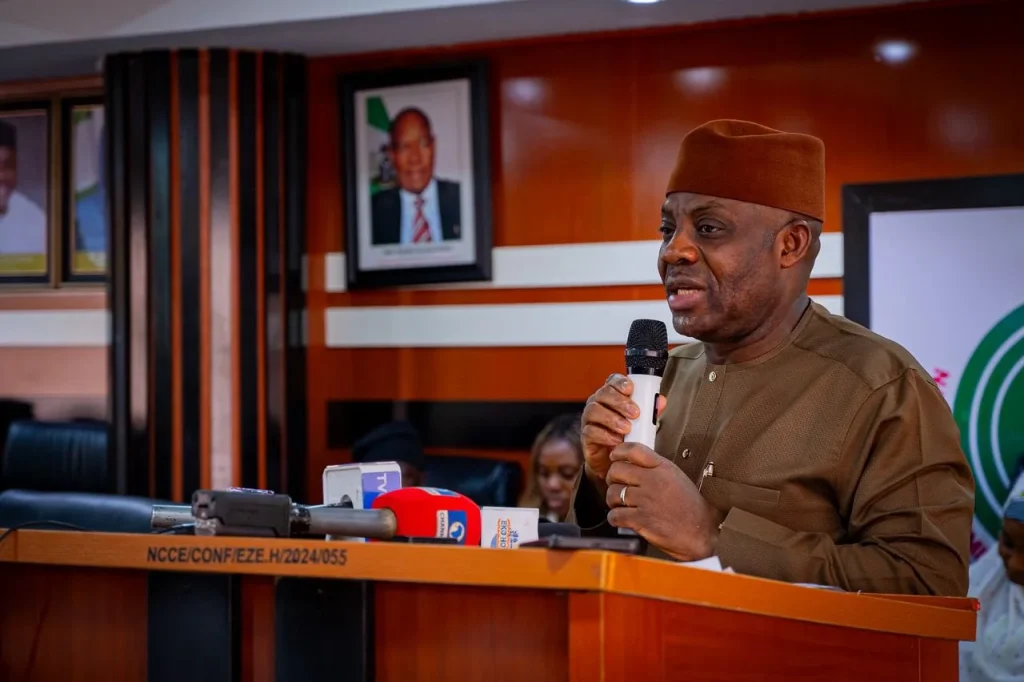The Federal Government, through the Nigerian Educational Research and Development Council (NERDC), released the approved subject offerings for the revised Basic and Senior Secondary Education Curriculum, warning against fake versions circulating online.
The reforms aim to reduce academic overload, enhance skill acquisition, and ensure relevance for Nigerian learners.
Key Features of the Reform
The curriculum, part of the Federal Ministry of Education’s National Education Sector Reform Initiatives (NESRI), will begin implementation in the 2025/2026 academic session for Primary 1, Primary 4, JSS1, and SS1.
Nationwide sensitization and teacher training will start immediately to ensure smooth adoption.
NERDC’s Executive Secretary, Professor Salisu Shehu, emphasized the curriculum’s focus on flexibility and positive learning outcomes.
Subject Offerings by Level
Primary 1–3 (Minimum: 9 subjects | Maximum: 10 subjects)
- English Studies
- Mathematics
- One Nigerian Language
- Basic Science
- Physical & Health Education
- Christian Religious Studies (CRS) or Islamic Studies (IS)
- Nigerian History
- Social and Citizenship Studies
- Cultural & Creative Arts (CCA)
- Arabic Language (Optional)
Primary 4–6 (Minimum: 11 subjects | Maximum: 12 or 13 subjects)
- English Studies
- Mathematics
- One Nigerian Language
- Basic Science and Technology
- Physical & Health Education
- Basic Digital Literacy
- CRS or IS
- Nigerian History
- Social and Citizenship Studies
- CCAPre-vocational Studies
- French (Optional)
- Arabic Language (Optional)
Junior Secondary School (JSS 1–3) (Minimum: 12 subjects | Maximum: 13 or 14 subjects)
- English Studies
- Mathematics
- One Nigerian Language
- Intermediate Science
- Physical & Health Education
- Digital Technologies
- CRS or IS
- Nigerian History
- Social and Citizenship Studies
- CCA
-
Trade Subjects (Choose one):
-
Solar Photovoltaic Installation & Maintenance
-
Fashion Design & Garment Making
-
Livestock Farming
-
Beauty & Cosmetology
-
Computer Hardware & GSM Repairs
-
Horticulture & Crop Production
-
-
Business Studies
-
French (Optional)
-
Arabic Language (Optional)
Senior Secondary School (5 Core Subjects + Electives)
-
Core Subjects:
-
English Language
-
General Mathematics
-
One Trade Subject
-
Citizenship and Heritage Studies
-
Digital Technologies
-
-
Electives (Choose from):
-
Science: Biology, Chemistry, Physics, Agriculture, Further Mathematics, Physical Education, Health Education, Foods & Nutrition, Geography, Technical Drawing
-
Humanities: Nigerian History, Government, CRS, IS, One Nigerian Language, French, Arabic, Visual Arts, Music, Literature in English, Home Management, Catering Craft
-
Business: Accounting, Commerce, Marketing, Economics
-
Trade Subjects (Choose one): Solar Photovoltaic Installation & Maintenance, Fashion Design & Garment Making, Livestock Farming, Beauty & Cosmetology, Computer Hardware & GSM Repairs, Horticulture & Crop Production
-
Stakeholder Reactions
Some teachers and parents have criticized the sudden rollout, citing a lack of consultation and inadequate school preparedness.
The government insists the curriculum, finalized on September 1, 2025, will make students “future-ready” with skills in digital literacy and trades, addressing modern economic demands.
Looking Ahead
The reforms mark a significant step toward modernizing Nigeria’s education system. With immediate training and sensitization efforts, the government aims to address concerns and ensure effective implementation.
The focus on digital skills, vocational training, and cultural studies positions students for global competitiveness.




















